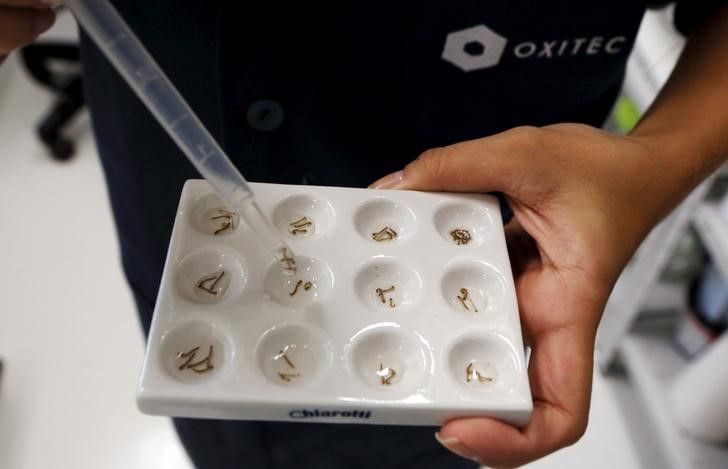White House Seeks $1.8 Billion In Emergency Funds For Zika Virus

WASHINGTON (Reuters) - President Barack Obama will ask the U.S. Congress for more than $1.8 billion in emergency funding to fight the mosquito-borne Zika virus in the United States and other countries, the White House said on Monday.
Most of the money would be spent in the United States on testing, surveillance and response in affected areas, and on research into a vaccine, with some funds also going to support countries already grappling with the virus, the White House said.
The World Health Organization has declared an international health emergency over the rapidly spreading virus, because scientists suspect it can cause microcephaly, a birth defect marked by an abnormally small head. Zika has been reported in 33 countries, mostly in the Americas.
Given Zika causes no symptoms in most people who are infected, and only mild symptoms in those who do get ill, U.S. health officials have said their greatest concern is for pregnant women or women who may become pregnant.
In an interview that aired on Monday, President Barack Obama noted the request for more resources but also urged calm.
"The good news is this is not like Ebola, people don't die of Zika. A lot of people get it and don't even know that they have it," he told CBS News. "But there shouldn't be panic on this, this is not something where people are going to die from it. It is something we have to take seriously."
There have been 50 confirmed cases of Zika in the United States among people who had traveled to affected areas, the Centers for Disease Control and Prevention has said. The White House said it would ask for $250 million for Puerto Rico, the financially struggling U.S. territory.
Top U.S. health officials are set to brief Congress this week. "Congress will review this new request and the president’s budget request. And given limited federal resources, we expect the administration will brief Congress on their funding priorities at the briefing," said Don Stewart, a spokesman for Senate Majority Leader Mitch McConnell.
Dr. Anthony Fauci of the National Institutes of Health and the CDC's Dr. Anne Schuchat were due to talk to reporters at the White House about the request later on Monday.
(Reporting by Susan Heavey, Megan Cassella and Roberta Rampton; Editing by Frances Kerry)
Published by Medicaldaily.com



























